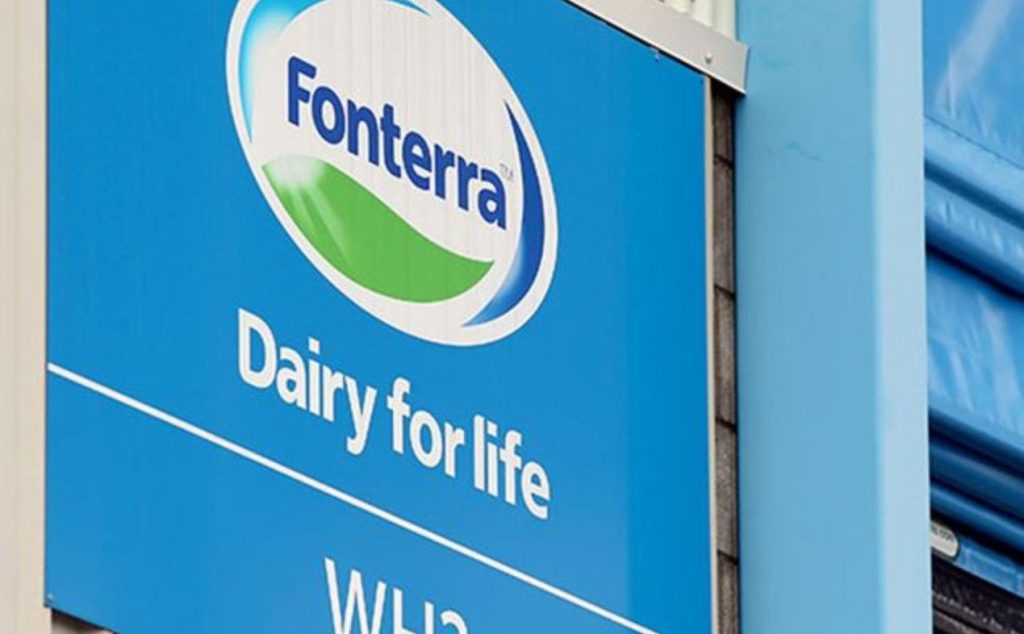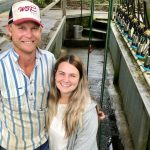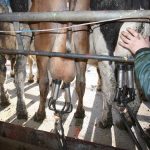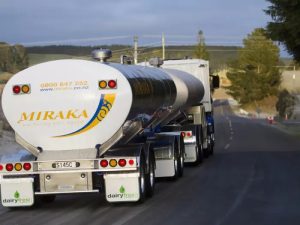
It has also revised its earnings guidance to 25-35 cents per share from 25-40c per share because of the higher milk price.
Fonterra chief executive Miles Hurrell says the lift is good news and is an important boost to New Zealand communities. With a midpoint of $8.70/kg MS it would contribute more than $13.2 billion to the NZ economy.
“It’s the result of consistent strong demand for dairy at a time of constrained global supply,” Hurrell said.
“We’ve seen the impact of a number of events play out this first quarter. That includes the high price of feed in the US, which has seen milk production growth stall and a lower-than-expected supply picture in Europe.”
He says they were well aware of the effects that rising input costs and inflationary pressures were having on farmers.
“There’s no doubt that inflationary pressures are starting to be felt on a global basis and we see that and hear that every day on the farm. Our farmers’ costs are increasing,” he said.
At this stage, he did not think it would have an adverse reaction to milk production. While Fonterra’s NZ milk supply was down 3% on this time last season, Hurrell says he was confident the co-operative will meet its production forecast of 1525m kg MS collected.
A 30% increase in whole milk powder prices helped Fonterra deliver an EBIT of $190 million for the three months ending October 31. While this was down $60m compared to the same time last year, the company was operating in a very different environment compared to 12 months ago.
This was achieved at a time when input costs are significantly higher than the same period last year.
Hurrell says there have been a number of factors at play in the first quarter.
“We’re seeing stable sales volumes in our foodservice channel, but a milk price at these high levels has squeezed margins. Our Chilean business continues to improve but tightening margins and weaker local currency in other markets have impacted our consumer channel overall,” he said.
“In our ingredients channel, we’re seeing margins in our longer-term pricing contracts return to more normal levels, which has helped push total group gross margin up from the last quarter last year.
“We continue to see the benefit of our focus on financial discipline with lower interest expense, and operating expenditure down 2% on the same quarter last year.”
Looking ahead, Hurrell says covid-19 continued to be a “watch out” for them as new strains became new unknowns.
The ongoing uncertainties from whether economies can recover from covid-19 also helped shape Fonterra’s 60c milk price forecast range.
While demand had softened slightly in China, it remained strong globally and Hurrell believed that would be the case for the rest of the season as supply remained constrained.
Chief financial officer Marc Rivers says he was pleased how well margins had held up so far this season.
“The key is what happens to all of the different components of the products across the portfolio,” Rivers said.
At the same time last year, Fonterra was looking at a milk price of $6.80/kg MS and was giving an earnings guidance of 20-35c.
“Now we’re sitting on a milk price of $8.70 and an earnings guidance of 25-35 (cents). We’re really pleased that the business has been able to hold up the margins, as well as we have in the context of a very high milk price,” he said.
Fonterra has also appointed JP Morgan, UBS and Jarden as advisors for its review into its Chilean and Australian operations respectively.
“In the meantime, both businesses – Chile and Australia – are doing very well,” he said.
Hurrell also touched on the capital restructuring vote on December 9, saying he was confident shareholders will vote in favour of it.
“We always said we wouldn’t take it to a vote unless we felt there was some momentum,” Hurrell said.
























